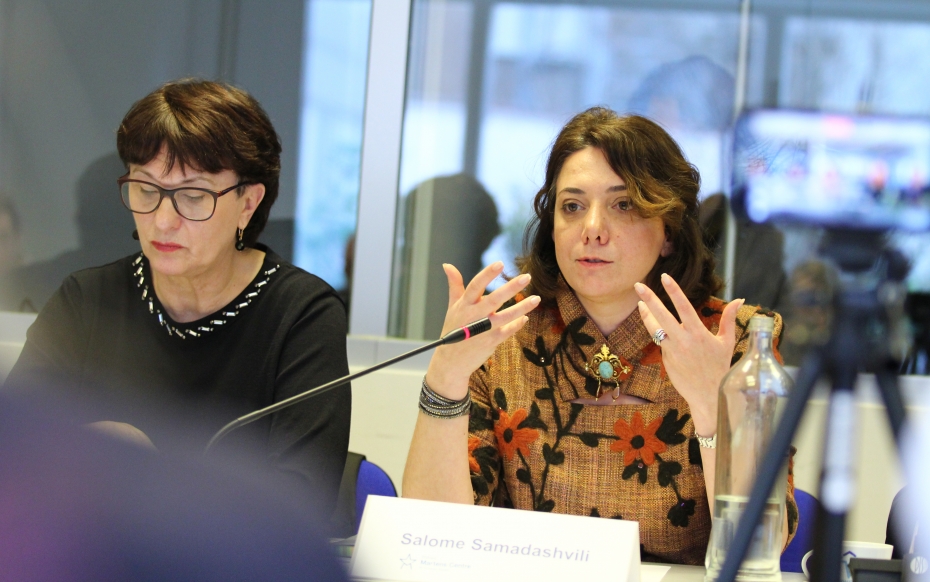EU’s foreign policy needs values and muscle to survive
01 February 2017

“People tend to forget that it is not just about pro-bono work in the European neighborhood; it is also our own interests that are at stake there.” This point, made by Martens Centre Executive Tomi Huhtanen, kicked off a debate organised in Brussels on 31 January 2017 on the strategic rethink of the European Neighbourhood Policy (ENP).
The EU’s current ENP policy is focused on supporting democratic transformation and creating economic opportunities in its neighbourhood through technical cooperation and economic integration.
But with growing instability including the Brexit decision, rising Euroscepticism, new ‘hybrid warfare’ threats, an assertive Russia, the rise of Islamic State and declining US engagement in European security, Europe has to take bold and decisive action to secure its long-term interests.
As the spillover effects of instability in the regions outside of the EU are taking a significant toll on the Union, rethinking the way it deals with its neighbourhood has to play a central part in the EU’s Global Strategy.
According to Salome Samadashvili, former EU Ambassador and current member of the Georgian Parliament, “the EU must graduate from a global actor to a geopolitical actor.” In order to achieve this, she argues for a pragmatic, yet principled and creative approach to EU’s policies in its neighbourhood.
EU institutions think in five or ten year terms. But if you operate in Georgia or in Libya you only have the luxury of planning up to one month in advance. Salome Samadashvili, former EU Ambassador and current Georgian MP
Sandra Kalniete, Latvian Member of the European Parliament added that countries in the neighbourhood need to be assessed case-by-case; for too long, the EU has been trying to apply a one-size-fits-all approach that has not benefited neither the EU, nor its partners.
During the event, Kalniete also emphasised a shift “from rule-based to deal-based diplomacy” taken by the new US administration; however, she maintained that the EU needs to stay true to its values while projecting its power abroad.
Not giving up our values while adding more pragmatism to the way Europe deals with its neighbourhood was a point also echoed by Bruno Lété, Security and Defence Transatlantic Fellow with the German Marshall Fund of the United States.
In ten years from now China will be an inevitable factor in EU’s neighborhood policy towards the Mediterranean. Bruno Lété, Security and Defence Transatlantic Fellow, German Marshall Fund of the United States
Subsequently, he argued for more short-term flexibility rather than long-term planning on the part of the EU. His third recommendation was that any successful foreign policy needs to be coupled with the ability to project power; this is where, according to Lété, NATO and EU-NATO cooperation come into play. Rather than debating where to place shared defence assets, the West needs to work more on efficient ways of delivering training, education and financial support to its partners.